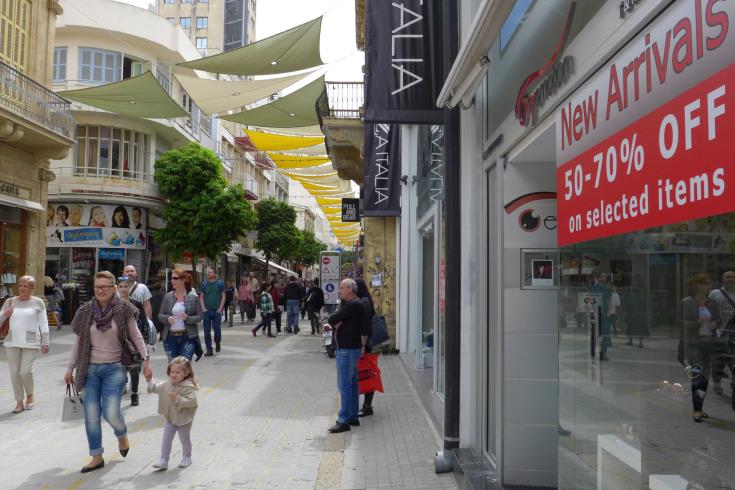As the novel Coronavirus spreads around the world, economies are shaken with stakeholders in the Cypriot economy fearing that if the virus poses a threat for a prolonged period Cyprus will pay a hefty price.
The world’s economy could grow at its slowest rate since 2009 this year due to the coronavirus outbreak, according to the Organisation for Economic Cooperation and Development (OECD).
This will have a tangible effect on Cyprus, an open economy dependent on imports and tourism.
CIIM finance professor George Theocharides argues the coronavirus has already harmed the global economy, and this is reflected in the huge losses on international stock markets, as well as forecasts of a global slowdown.
He said the previous week saw international stock exchange markets perform at their worst since 2008 when the global financial crisis began.
Theocharides urged the authorities to be prepared to intervene and stimulate the economy in case of a COVID-19 pandemic which would seriously impact construction, services and tourism.
The Cyprus GDP grew at a rate of 3.2% last year, and before the outbreak of coronavirus and global financial turmoil, most expected a slowdown in growth.
Last year’s growth rate was the lowest recorded for five years.
“Although far from a doomsday scenario, the coronavirus poses a significant threat to the economy, as Cyprus is vulnerable to fluctuations in international markets,” Theocharides told the Financial Mirror.
He said the Fed (the central banking system of the United States of America) cut key interest rates by 50 basis points midweek but failed to allay US concerns as losses continued.
The CIIM professor said that if the virus is not contained within the next couple of months, then construction would definitely be hit as investments will dwindle while people will be forced to stay at home.
Limited diversification
This will also have a serious impact on services and tourism, if there is an outbreak in Cyprus then domestic consumption will also be affected.
“If the spread of coronavirus is not contained within the next few months, then summer reservations for most tourist destinations will inevitably be affected.
This would have disproportionately negative consequences for the Cypriot economy due to its limited diversification.”
He explained that the virus came at a time when the global economy is going through turbulence with the trade war between China and the United States.
Countries such as Italy and Germany saw exports to China suffer, while Britain’s economy has not yet overcome Brexit uncertainties.
“The virus has highlighted the lack of diversity in the Cyprus economy, and as such the state will have to step in with fiscal stimulus packages, lowering of taxes, and stimulating the market with an influx of cash in the form of investments undertaken by the government.”
Other countries don’t have much fiscal space, but Cyprus has had substantial primary surpluses over the past few years which could be put to good use.
Monetary stimulus might also be necessary with the Central Bank stepping in and lowering interest rates even further and pushing banks to increase the supply of money to the market.
A finance professor at the Cyprus University, Stavros Zenios said the longer it takes to get the virus under control the bigger the hit the Cypriot economy will sustain.
He told news website Stockwatch that Cyprus could be looking at significant losses.
“If we are talking about 2-3 months then that could bring about a drop in GDP by a few percentage points. Studies say up to 5% annual GDP loss if, for example, schools are closed for a long time and workers are forced to stay home with their children.”
He gave the example of Northern Italy, where there was a decrease of 80% in movement within the affected areas, causing restaurants to temporarily close.
Zenios believes that consumption will be limited due to increased uncertainty, but it should pick up after the outbreak, with businesses and households rushing to cover lost ground.
The UCY professor said he expected the effects to be short-term, but the government will need to be ready to provide temporary relief.
“In some countries, there is talk of suspending payments to the government,” said Zenios.
“In Cyprus, for example, the definition of NPL may be changed temporarily, allowing borrowers to delay payments for more than 90 days. Similarly, banks need to exhibit more flexibility when it comes to financing businesses during a pandemic.”









